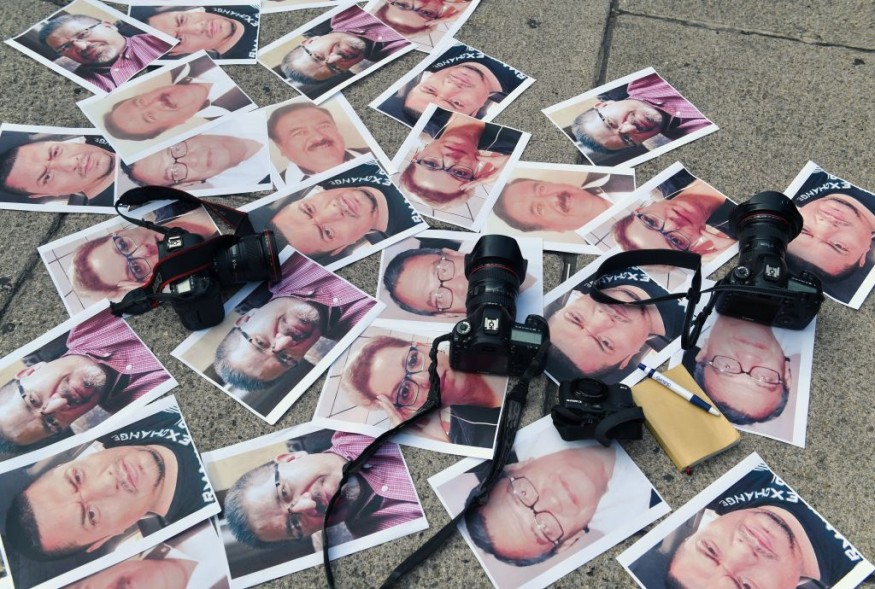Mexican Drug Cartels Attack the Media in Battle for Territory; Jalisco Cartel ‘El Mencho’ Has a Message for 'Attackers'

After the emergence of the video on social media of Jalisco cartel masked men armed with assault weapons who directly warned Azucena Uresti, a prominent journalist in Mexico, the video caused outrage in the country, especially on the Mexican media.
Uresti became a hot personality for the Jalisco New Generation Cartel (CJNG) after a nightly Milenio TV program broadcast about a story on the battles in western Michoacán state between drug dealers of the Jalisco cartel and an alliance of local cartels and self-defense groups.
Mexico's Jalisco Cartel Issues Death Threat
According to Financial Times, one of the men in the video claimed that he was simply relaying a message from drug lord Nemesio Oseguera Cervantes or "El Mencho," who is the head of the Jalisco Cartel.
The man allegedly stated that El Mencho wanted to say to Uresti: "I will find you wherever you are and I will make you eat your words, even if they accuse me of femicide." The man added: "I'm not against freedom of expression, but I am against whoever attacks me directly."
According to political analysts, they saw the recent movement as an escalation in the Mexican drug cartels' increasingly brazen assault on the civil society of Mexico.
Javier Garza Ramos, a journalist in the northern city of Torreón, said the Mexican drug cartel warnings were happening in numerous parts of the country daily, but it was the first time they had targeted a nationally prominent journalist.
Ramos noted that the important question, in this case, was why did a criminal group felt so emboldened in doing so. He added that Mexican drug cartels usually acted together with crooked cops and public officials who cowed and killed journalists with impunity.
Ramos emphasized that the attack on the press turned Mexico into the most dangerous country for media workers.
READ NEXT : 6 Men Hanged From Bridge in Mexico Amid Bloody Turf War Between Rival Mexican Drug Cartels
Mexican Drug Cartels: Testing the Limits
The Jalisco cartel, which is specifically well-known for its brutality, was blamed for the assassination and death of Mexico City's police chief in June 2020. The attack also killed two security guards and a bystander. In battles against rivals in Michoacán, the Jalisco cartel blocked highways and launched drone attacks.
Senior Mexico analyst at the International Crisis Group, Falko Ernst, said the Mexican drug cartels were doing greater aggression in fending off outside intervention into their affairs. He added that maybe they felt a bit more leeway than before, so they were testing the limits.
Meanwhile, Mexican President Andrés Manuel López Obrador has maintained his "hugs, not bullets" strategy. The move, which departed from the heavily armed response of some of his predecessors, remains ill-defined.
Last month, López Obrador said Mexico could confront evil with evil and violence with violence. However, the strategy of Lopez Obrador, which increasingly relies on the military to perform security functions, is still questioned as the homicide rate remained stubbornly high at 29 per 100,000. Only a little had changed from when López Obrador took office in late 2018.
This article is owned by Latin Post
Written by: Jess Smith
WATCH: Press Freedom Under Attack in Mexico as TV Anchor Gets Death Threat from Cartel over Reporting - From Democracy Now!
Subscribe to Latin Post!
Sign up for our free newsletter for the Latest coverage!
© 2026 Latin Post. All rights reserved. Do not reproduce without permission.















